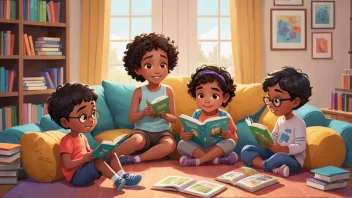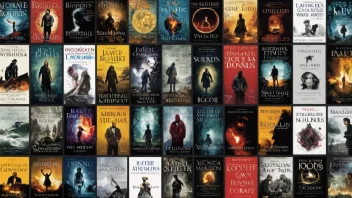In an age dominated by technology and rapid information exchange, the role of classic literature in education is often questioned. However, these texts remain invaluable, offering students a profound understanding of historical contexts, ethical considerations, and the intricacies of human behavior. Classic literature serves as a gateway to understanding not only the past but also the complexities of the modern world.
One of the most compelling reasons to include classics in educational curricula is their ability to provide historical context. Works like '1984' by George Orwell or 'Brave New World' by Aldous Huxley reflect the anxieties and ideologies of their respective times. By studying these texts, students gain insight into significant historical events and the societal values that shaped them. This awareness fosters a critical understanding of how history informs current issues, allowing students to become informed citizens who can engage thoughtfully with the world around them.
Ethical dilemmas are another prominent theme in classic literature that invites deep reflection. For instance, in 'Crime and Punishment' by Fyodor Dostoevsky, characters grapple with morality, guilt, and redemption. Such narratives challenge students to confront their own ethical beliefs and consider the implications of their choices. By engaging with these complex moral landscapes, students develop the ability to think critically about right and wrong, a skill that is indispensable in today's world of ethical ambiguity.
Moreover, classic literature delves into the depths of human psychology, exploring themes like identity, love, and conflict. In 'The Catcher in the Rye' by J.D. Salinger, readers are introduced to Holden Caulfield, a character whose struggles with alienation and authenticity resonate with many young adults. By exploring the emotional landscapes of classic characters, students cultivate empathy and emotional intelligence, essential traits for meaningful interpersonal relationships.
The language and literary devices used in classic literature also contribute to students' linguistic development. Engaging with the rich vocabulary and intricate sentence structures found in works such as 'Jane Eyre' by Charlotte Brontë or 'The Brothers Karamazov' by Dostoevsky expands students' language skills and appreciation for the nuances of expression. This exposure to diverse writing styles can inspire students to enhance their own writing, encouraging creativity and self-expression.
However, educators must approach the teaching of classic literature with sensitivity to the diverse backgrounds of their students. While some may find classics relatable, others may feel disconnected due to cultural or societal differences. To bridge this gap, teachers can facilitate discussions that allow students to draw parallels between classic themes and contemporary issues, making the material more accessible and relevant.
In conclusion, classic literature serves as a vital component of modern education, providing historical context, ethical exploration, and psychological insights. By engaging with these texts, students not only gain a deeper understanding of the world around them but also develop critical skills that will serve them throughout their lives. Embracing classic literature in the classroom is an investment in fostering thoughtful, empathetic, and informed citizens.
Classic Literature: A Gateway to Understanding
Explore the invaluable role of classic literature in education and its significance in understanding historical contexts and ethical dilemmas.






